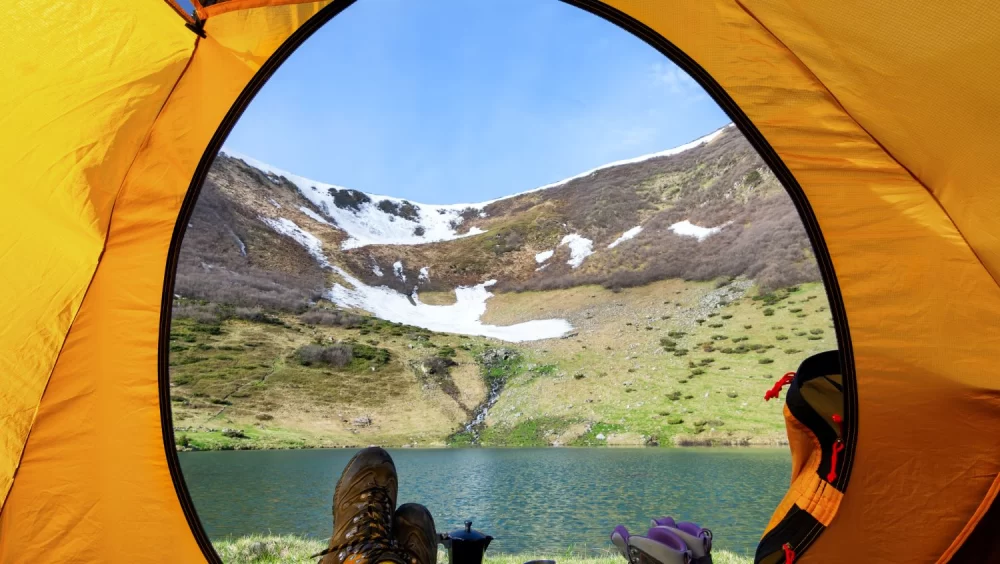Planning your first solo camping trip? Discover essential tips and expert advice on how to plan a solo camping trip for the first time. From choosing the perfect campsite to packing essential gear, our guide has everything you need for a safe and unforgettable solo camping experience.

How to Plan a Solo Camping Trip for the First Time
- Choosing the Right Campsite
- Essential Camping Gear for Solo Travelers
- Packing for Your Solo Camping Trip
- Staying Safe While Camping Alone
- My Solo Camping Experience: A True Adventure
Choosing the Right Campsite for Your Solo Trip
When planning a solo camping trip for the first time, selecting the right campsite is one of the most crucial decisions. Your choice can greatly affect your overall experience, so it’s important to consider a few factors before finalizing your destination. Look for campgrounds that offer privacy but are still close enough to emergency services or local towns. For first-time solo campers, a site with well-maintained facilities is recommended. National parks or designated camping areas are great options as they provide both safety and a range of scenic experiences. You might want to choose a site that is popular enough to feel safe, but remote enough to offer solitude and immersion in nature.
Essential Camping Gear for Solo Travelers
Your gear will make or break your camping experience. For first-time solo camping, it’s critical to pack light but with all the essentials. A good-quality tent is non-negotiable. Ensure your tent is easy to set up, waterproof, and can withstand the elements. A reliable sleeping bag and pad will ensure a good night's rest, even when you're outdoors alone. For cooking, a portable stove, lightweight cookware, and freeze-dried meals are great choices. Remember to pack a multi-tool, flashlight, first aid kit, and extra batteries. Never underestimate the importance of navigation tools, such as a compass or a GPS device. Don’t forget sunscreen, insect repellent, and a weather-appropriate jacket to ensure comfort no matter the weather.
Packing for Your Solo Camping Trip
When you’re camping alone, your packing list should be both practical and compact. Think about your essentials first – food, water, and safety gear – and only add extra items that will truly enhance your experience. Lightweight, multifunctional gear is ideal. For example, a small camp chair and a headlamp will make your camping experience more comfortable. Packing a camera or journal will allow you to capture memories of your adventure. As a first-timer, you may feel tempted to over-pack, but focus on quality over quantity. A good rule of thumb is to pack only what you know you'll use, avoiding unnecessary items.
Staying Safe While Camping Alone
Safety is a top priority when camping alone for the first time. Here are some important tips to ensure your well-being while enjoying the great outdoors. First, always share your trip details with a friend or family member – including your campsite location and expected return time. Consider bringing a satellite phone or emergency beacon in case of a situation that requires immediate attention. Always be aware of your surroundings, and trust your instincts. For example, if you feel uneasy about a particular area, don’t hesitate to move your campsite. Additionally, check the weather forecast frequently to avoid unexpected storms. Keep your food stored securely away from your tent, as animals can be attracted to food smells.
My Solo Camping Experience: A True Adventure
In my first solo camping experience, I decided to hike into a remote national park. At first, I was nervous, but I soon discovered the beauty and peace that come with solo travel. I remember waking up to the sound of birds and a light breeze, feeling completely at peace with nature. The first night was the hardest – setting up camp alone was a challenge, but the sense of accomplishment when I finished was incredible. As I sat around the campfire, reflecting on my journey, I realized that solo camping isn't just about escaping the hustle and bustle of life – it’s about reconnecting with yourself and nature in a way you never could with others around. It was one of the most transformative experiences of my life, and I highly recommend it for anyone looking for adventure and self-discovery.
Pine Glen Youth Group Campground
Marseilles, IL 61341, USA
Visit Location Page